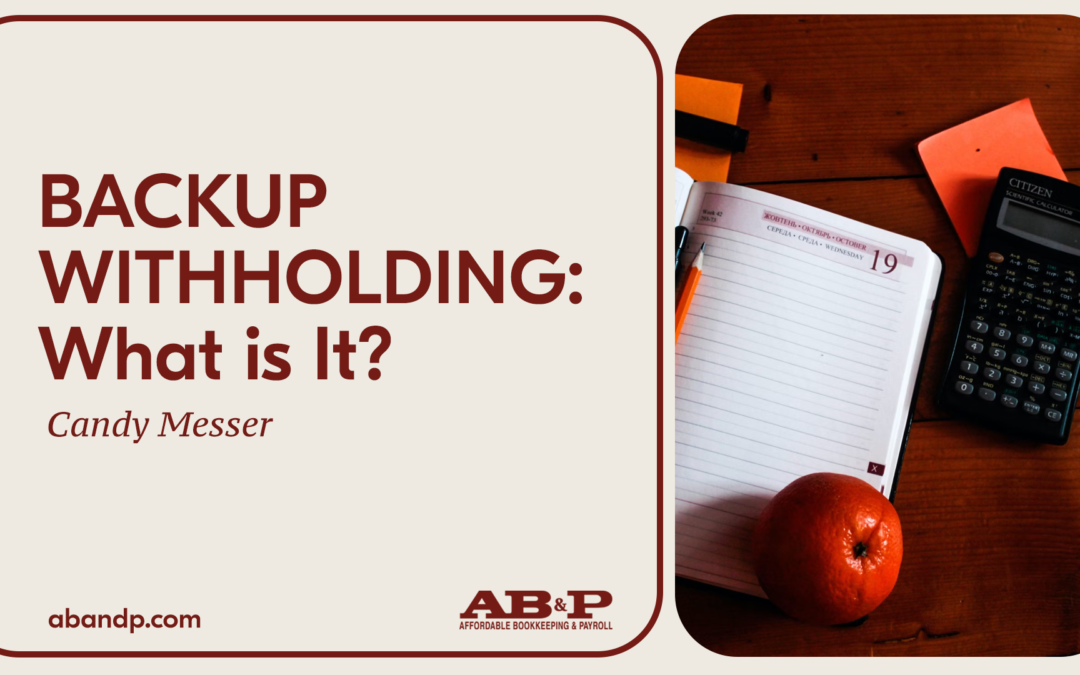As an entrepreneur, you are required to report certain payments to the IRS made to vendors each year on Form 1099. To do so, you must ask them to submit a form W-9 Request for Taxpayer Identification Number and Certification.
If you receive a notice from the IRS that states there is a name/TIN mismatch, there are a couple of things to do. The first is to reach back out to the vendor to make sure they completed the form according to how their tax return is filed. Because the IRS could not match the name to the tax ID number, a mismatch was flagged. This often happens when a business operates under a DBA and this is the name they gave you, but the income is reported on the individual’s tax return. In this case, the business should complete form W9 with their legal individual name and can include the business name, but you will submit a 1099 under their personal name and Social Security Number. If they update the information to match IRS records, you will not have to withhold funds from payments.
But if the vendor states the details submitted to you are correct but you had a mismatch notice, you must reduce payments to them due to required backup withholding regulations.
Backup withholding can apply to most kinds of payments reported on Forms 1099. If required, you must retain 24% of the payment to ensure the IRS receives the tax due on this income. If you must institute backup withholding for a vendor, you must deposit the withholding with the IRS. This can be accomplished through their Electronic Federal Tax Payment System (EFTPS), or a wire initiated through your financial institution.
There are two deposit schedules—monthly and semiweekly—for determining when you deposit withheld federal income tax. You’re a monthly scheduled depositor for Form 945 if the total tax reported on your prior years’ return (if required) was $50,000 or less. If the total tax reported was more than $50,000, you’re a semiweekly scheduled depositor.
If you withhold funds from your vendor, you must file Form 945 which is generally due January 31 each year. There are penalties for tardy filing of Form 945 as well as depositing taxes late, unless not filing and/or paying on time is due to reasonable cause and not willful neglect. If you have additional questions on this topic, be sure to review Publication 15, Employer’s Tax Guide.
https://youtu.be/qfg9OIZvqcA
